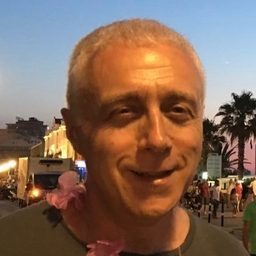
Marcus Chown
Writer at Freelance
Writer. Books include A Crack in Everything, Breakthrough, The Ascent of Gravity, Infinity in the Palm of Your Hand & Quantum Theory Cannot Hurt You
Articles
-
1 month ago |
skyatnightmagazine.com | Marcus Chown
The Horsehead Nebula is one of the most famous deep-sky objects in astronomy. It's located in the constellation Orion and is formed out of a dense cloud of cosmic dust known as a dark nebula. This dark cloud blocks light coming from emission nebula IC 434, revealing the shape of a horse's head, not dissimilar to a knight chess piece. But as we know, nothing lasts forever. So how long before the Horsehead Nebula no longer looks like a horse's head?
-
2 months ago |
newhumanist.org.uk | Marcus Chown
Everyone knows that Isaac Newton discovered the law of gravity, and that Charles Darwin discovered evolution by natural selection. But how many people know that Cecilia Payne discovered what makes up the Universe? This year marks a century since Payne, an English woman at Harvard university, submitted the most important astrophysics PhD of the 20th century.
-
Mar 4, 2025 |
prospectmagazine.co.uk | Marcus Chown
Emmy Noether is responsible for an idea so important that it ranks alongside Charles Darwin’s concept of evolution by natural selection as a central and unifying principle in science.
-
Feb 4, 2025 |
newhumanist.org.uk | Marcus Chown
Years ago, when I was a student at Caltech, I remember the physicist Richard Feynman saying: “You can know more than you can ever prove.” Never was this scientific intuition used to greater effect than by the Danish physicist Niels Bohr, who in the early 20th century concocted a model of the atom that explained all of chemistry but which had pretty much no scientific justification.
-
Jan 21, 2025 |
kara.reviews | Marcus Chown |Kara Babcock
A few years ago, probably during lockdown, I watched the excellent Netflix documentary Black Holes: The Edge of All We Know about the Event Horizon Telescope and the effort to photograph the supermassive black hole at the centre of galaxy M87. Black holes have always captivated me ever since, as a wee lass, science and science fiction came on my radar. How could they not? So even though Marcus Chown is a new-to-me science writer, I was excited to read A Crack in Everything.
Try JournoFinder For Free
Search and contact over 1M+ journalist profiles, browse 100M+ articles, and unlock powerful PR tools.
Start Your 7-Day Free Trial →X (formerly Twitter)
- Followers
- 51K
- Tweets
- 317K
- DMs Open
- No